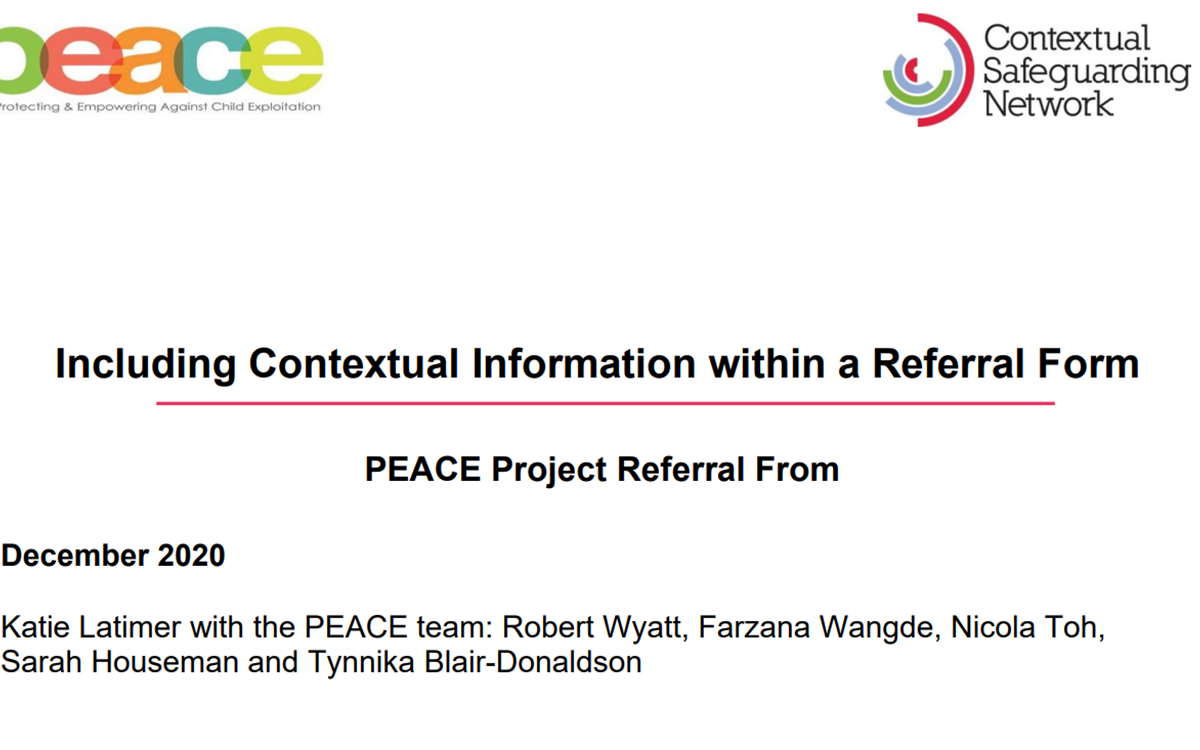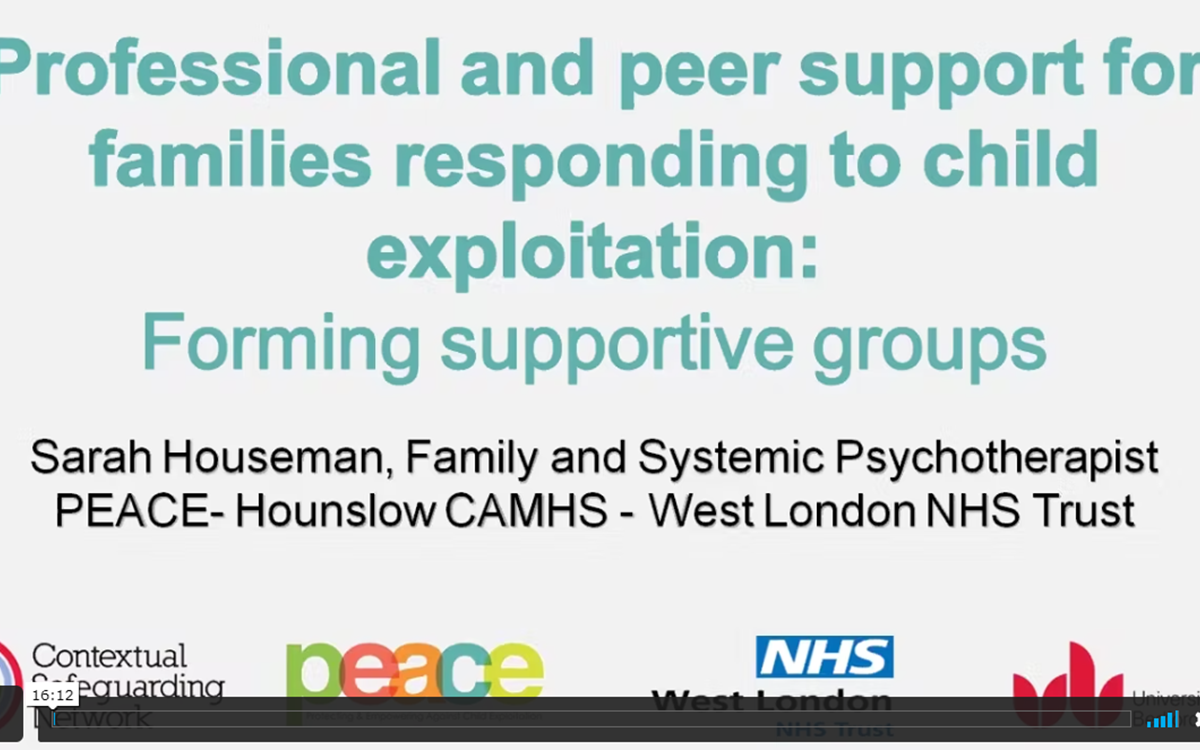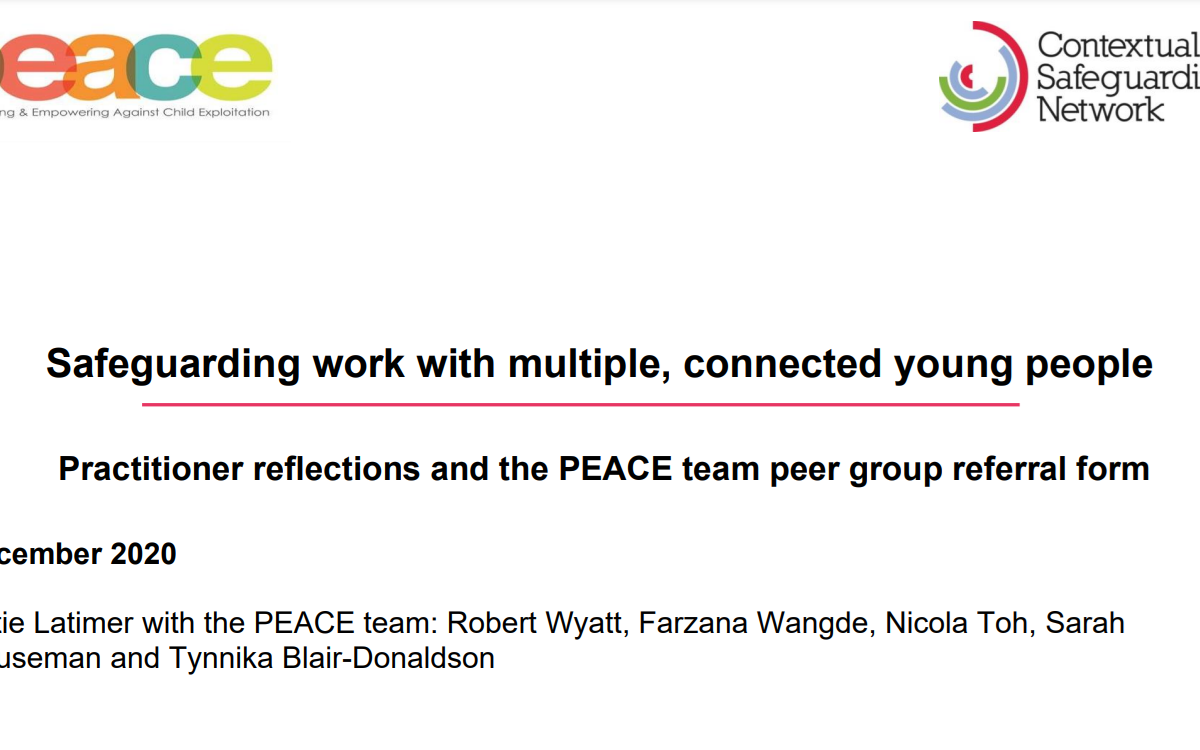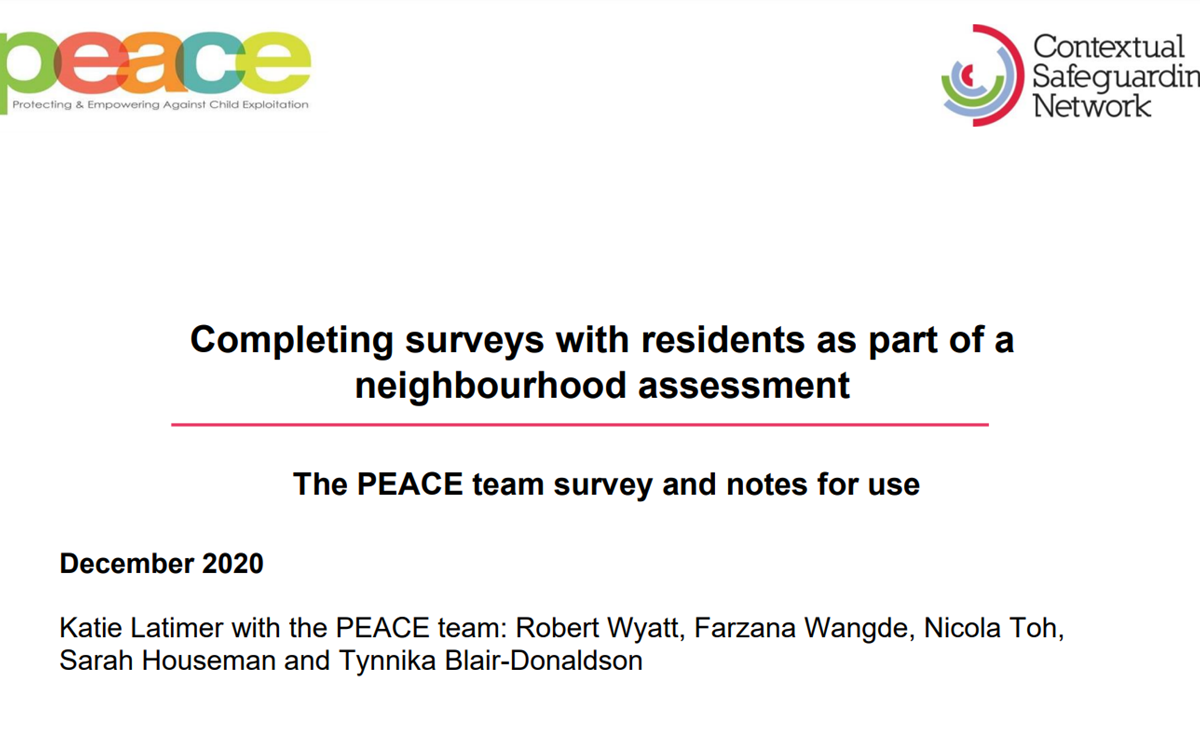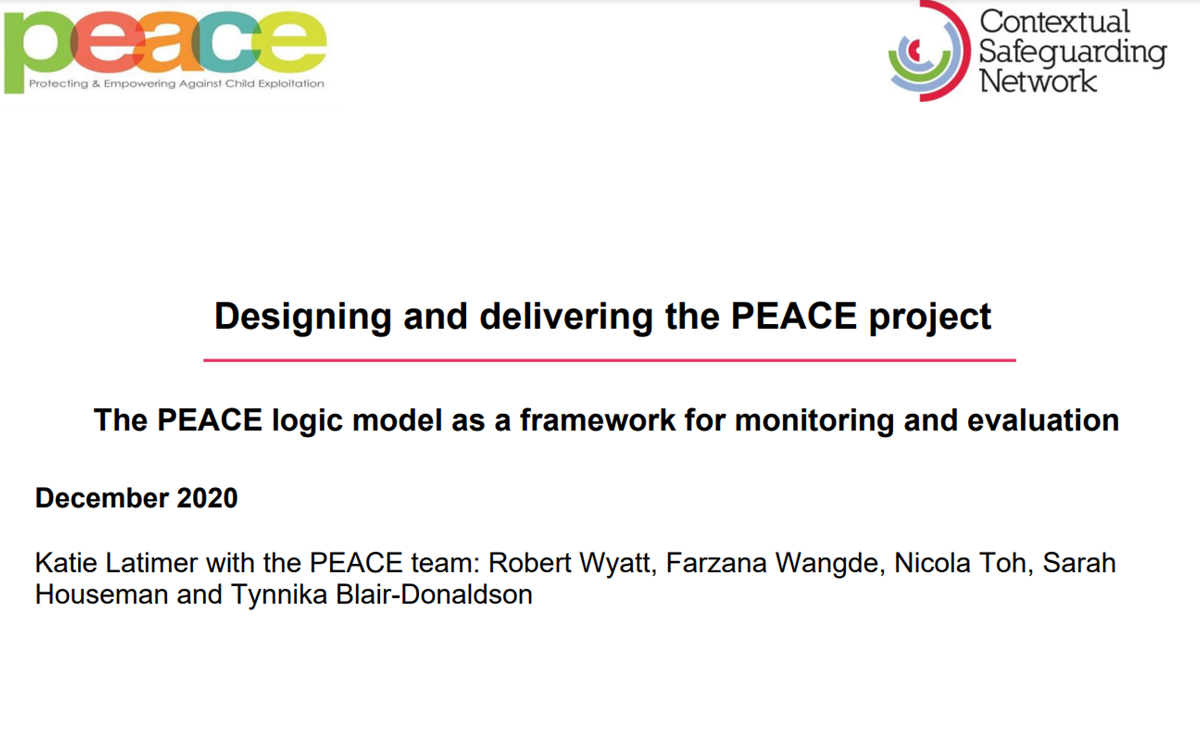The PEACE project aims to protect young people at risk of extra-familial harm, with a particular focus on criminal and sexual exploitation. The project is located within the London Borough of Hounslow’s Youth Offending Services.
Katie Latimer, Research Fellow, spent one day week with the PEACE project to understand and capture their work, as they seek to embed a contextual approach within their interventions.
The research asked:
- How can Contextual Safeguarding theory and practice be used and developed within PEACE?
- How can this learning be extended across Hounslow Children’s and Families’ Services?
To support this understanding, Katie used the following methods as an embedded researcher:
- Review of policies, procedures and assessments associated to adolescent safeguarding in Hounslow and the PEACE project
- Observation of multi-agency meetings and shadowing of practitioners and services within Hounslow children and young people’s social care.
- Work with the project team in Hounslow to develop tools to self-evaluate their project.
- Observation of local contexts (for example fast food outlets, parks or shopping centres) within Hounslow as part of the pilot developed by the Hounslow project team.
- Training sessions and reflective workshops for staff working in Hounslow social care and other relevant agencies on contextual safeguarding.
- Identification of examples of contextual practice in the UK and internationally from the practitioners network that can be shared with Hounslow (via the embedded researcher) to enable an iterative learning process, and communicate lessons from Hounslow to the wider Contextual Safeguarding Network.
The resources below were co-developed by Katie and practitioners from the PEACE project team to share learning from the project.
Principal investigator: Dr Carlene Firmin
Funder: Home Office (Trusted Relationships) / London Borough of Hounslow
Contact: contextual.safeguarding@durham.ac.uk
